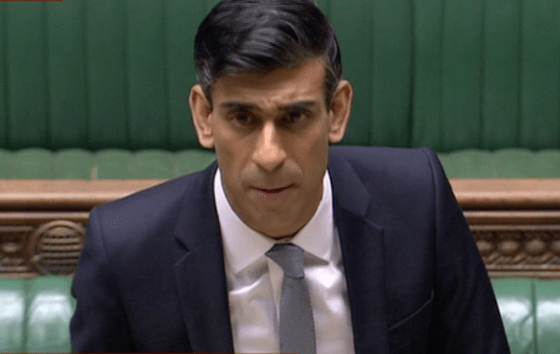John Phillips, national operations director at Just Mortgages, said the Budget was light on news for those in the property sector, as expected.

Chancellor Rishi Sunak unveiled his Budget this afternoon which included investment for brownfield housing projects, the removal of cladding from high risk buildings and the expectation that unemployment will peak at 5.2%.
John Phillips, national operations director at Just Mortgages, said the Budget was light on news for those in the property sector, as expected.
He said however, that there was some positive news with significant funds allocated for building new homes on brownfield sites, but he does not expect the benefits of this to be felt for years.
Andrew Asaam, mortgages director of Lloyds Banking Group, said that creating a fund to build new homes on brownfield sites is a welcome step in helping to address the ongoing shortage of homes across the UK and repurposing available land.
"We look forward to supporting this important initiative as we provide vital lending to housebuilders, first-time buyers, homemovers and private landlords," he added.
Phillips said that while some may have been calling for a review of stamp duty, the lack of action is actually a positive for the market.
He added: “Last year transactions were artificially inflated by the tax savings and the pandemic, and since stamp duty has returned, the urgency has dropped, but demand has remained."
Steve Seal, chief executive of Bluestone Mortgages, said the Chancellor's commitment to investing in the housing market is welcome news for all, however he believes it needs to be backed by a realistic and credible plan to deliver on the critical need for housing.
Seal believes that further government investment to build affordable homes will support the younger generation and low income families locked in rental cycles to take their first steps onto the property ladder.
He added: "The £5bn fund to remove unsafe cladding will help prevent homeowners from becoming property prisoners, but, speed is of the essence, and we must see the government deliver on these promises quickly.”
Jeremy Raj, national head of residential property at Irwin Mitchell, said: “As feared, the government has now confirmed its intention to point the finger at a select group of developers, tax them, in a way that doesn’t address the issue or change behaviours, and then tiptoe away from the cladding scandal."
Raj said that he does not think it is clear clear whether the tax will actually go as additional funds towards remediating the problem, or indeed helping those currently trapped in unsafe or un-sellable homes.
As as result, he believes that all interested parties should work together to ensure that: "the heat isn’t turned down in respect of making funds available for remedial work, vastly improving the regulatory, planning and building regulations framework and ensuring the true culprits don’t escape unpunished."
Looking to the investment in affordable homes revealed during the Budget, Nitesh Patel, strategic economist at Yorkshire Building Society welcomes the Chancellor's announcement that the government will invest £11.5bn in building 180,000 homes on brownfield sites.
However, Patel said that Rishi Sunak could have further increased the number of properties available from existing housing stock through stamp duty reform.
He said: "“We estimate that 50% of all residential purchases fall below the £250,000 threshold which account for only circa 10% of total residential stamp duty receipts.
“Abolishing the lowest threshold would make it easier for homeowners at the lower end of the ladder to trade up to a larger home and would increase the supply of existing housing available for first-time buyers."



